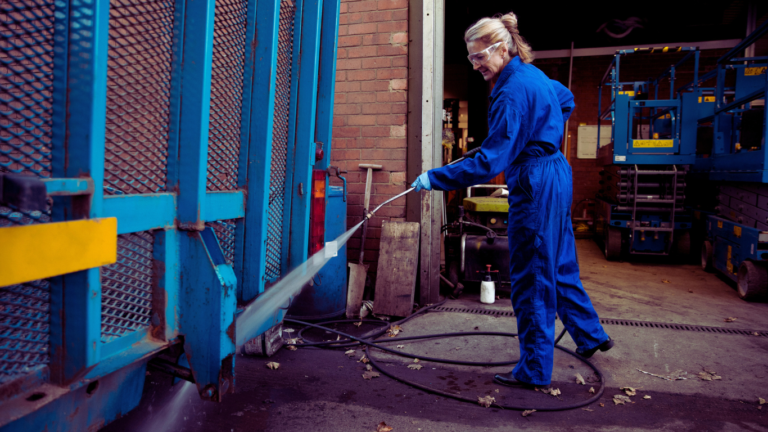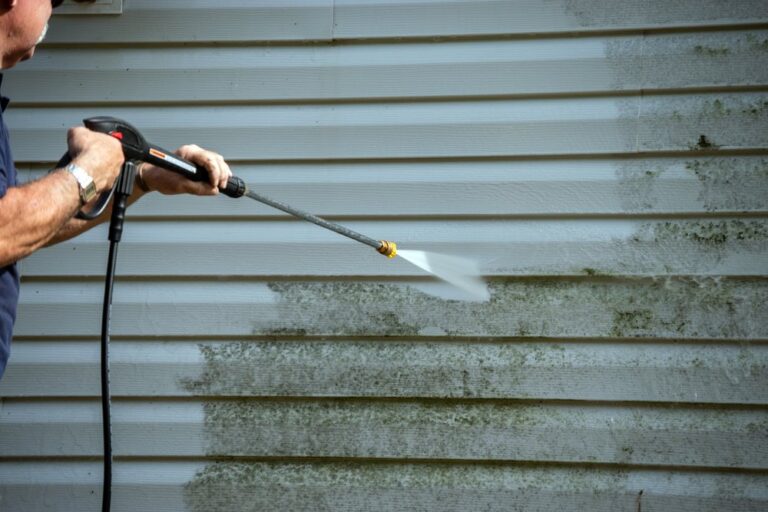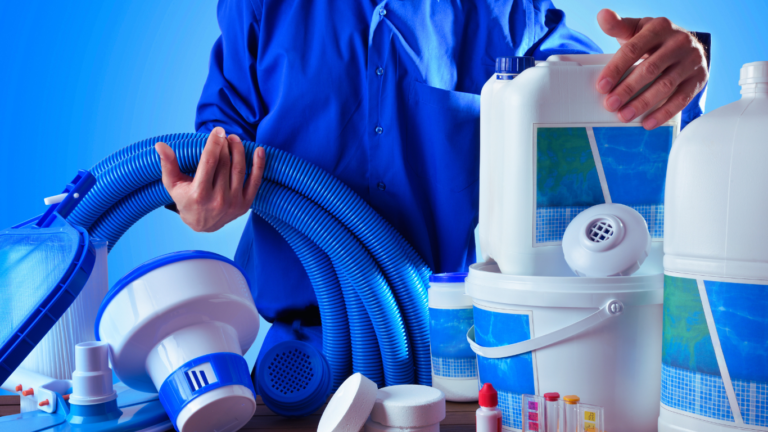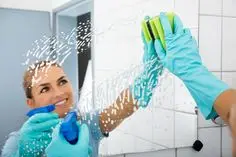Couch cleaner and their benefits, types, and tips
Your couch is more than just a piece of furniture; it’s the centrepiece of your living room, a place where you relax after a long day, entertain guests, and maybe even enjoy a snack or two. But with all that use, it’s no surprise that your couch can quickly become a magnet for dirt, stains, and unpleasant odours. This is where the importance of a good couch cleaner comes in.
We’ll cover all you need to know about sofa cleaning in this in-depth guide, from the many kinds of cleaners that are available to maintenance advice and dealing with common stains. You will have all you need to keep your sofa looking new and welcoming by the time you finish reading this article.

Couch Fabrics and Why It Matters
It’s important to know what kind of fabric your couch is composed of before attempting to clean it. Different materials require different cleaning approaches, and using the wrong cleaner can result in damage to your upholstery.
Leather: Leather couches exude luxury and durability, but they also require special care. Leather that is not properly cared for may dry out and break. Avoid using water-based cleaners on leather, as they can lead to staining. Rather, use a speciality leather conditioner and cleaner.
Microfiber: Known for its stain resistance and softness, microfiber is a popular choice for families with children and pets. However, it can be tricky to clean because it’s sensitive to water. Solvent-based cleaners are typically recommended for microfiber upholstery.
Cotton: Cotton is a natural fibre that breathes well but can be prone to staining. Cleaning a cotton couch often requires gentle methods to avoid shrinkage or colour fading. Mild detergents or fabric-safe cleaners are ideal for this type of material.
Polyester: Polyester couches are durable and resistant to stretching and shrinking, but they can accumulate stains over time. These can often be cleaned with a mild soap and water solution, but it’s essential to check the manufacturer’s guidelines before proceeding.
Velvet: Velvet is an opulent material that has to be handled carefully. Since too much moisture might quickly harm it, a dry cleaning chemical is usually advised. Velvet couches should be regularly brushed to maintain their plush appearance.

The Different Types of Couch Cleaner
With your increased knowledge of the fabric of your sofa, it’s time to investigate the many kinds of couch cleaner on the market. Selecting the right couch cleaner is key to maintaining the appearance and longevity of your furniture.
Water-Based Cleaners: Water-based cleaners are commonly used for general fabric cleaning. They’re suitable for removing everyday dirt and grime and can be effective on materials like cotton and polyester. Water-based cleansers, however, should not be used on delicate textiles like microfiber and leather since they may harm or discolour them.
Solvent-Based Cleaners: Solvent-based cleaners are used for fabrics that are sensitive to water, such as microfiber and velvet. These cleaners dissolve stains without the need for water, making them ideal for delicate materials. It’s important to ensure that the room is well-ventilated when using solvent-based cleaners due to their strong fumes.
Foam Cleaners: Foam cleaners are versatile and easy to use, making them a popular choice for various fabric types. The foam is applied directly to the stain, where it lifts dirt and debris to the surface. Once the foam has dried, it can be vacuumed away, leaving the fabric clean.
Dry Cleaning Solvents: Dry cleaning solvents are ideal for fabrics that cannot withstand moisture. These are often used for delicate materials like velvet and are effective in removing oil-based stains. To make sure the solvent doesn’t bleed into the fabric or cause harm, always test a tiny area first.
Enzymatic Cleaners: Pet and food stains may be effectively removed with enzymatic cleaners, which are particularly effective at removing organic materials. The enzymes in these cleaners work by breaking down proteins and other organic compounds, making it easier to remove tough stains. These are particularly effective for households with pets.
Natural and DIY Cleaners: For those who prefer a more eco-friendly approach, natural and DIY cleaners are an excellent option. Ingredients like baking soda, vinegar, and essential oils can be used to create effective cleaning solutions at home. These are typically safer for the environment and for households with small children or pets.

A Step-by-Step Guide to Cleaning Your Couch
Cleaning your couch doesn’t have to be a daunting task. With the right tools and techniques, you can keep your couch looking as good as new. Step-by-step couch cleaner guide to help you get started:
1. Preparation:
Vacuum Thoroughly: Begin by vacuuming your couch to remove loose dirt, dust, and crumbs. In order to reach the seams and crevices, use a brush attachment.
Check the manufacturer’s label: Look for the care label on your couch, which will usually have cleaning codes that indicate the appropriate cleaning method:
W: water-based cleaner
S: solvent-based cleaner
WS: Either a water-based or solvent-based cleaner
X: Vacuum only; no water or solvent-based cleaners
2. Spot Test:
Before applying any cleaner, it’s essential to perform a spot test on a small, inconspicuous area of the couch. This will help ensure that the cleaner doesn’t damage or discolour the fabric. After a little bit of the cleaner has been applied, let it dry, and look for any negative responses.
3. Apply the cleaner.
Water-Based Cleaner: If your couch is compatible with water-based cleaners, mix a small amount of mild detergent with water. Gently dab the stains with a clean cloth dipped in the solution. Avoid soaking the fabric, as this can lead to watermarks.
Solvent-Based Cleaner: For solvent-based cleaners, follow the instructions on the product label. To stop the stain from spreading, apply the cleanser to a clean cloth and dab the area.
Foam Cleaner: Spray the foam cleaner directly onto the stain and let it sit for the recommended time. To get rid of the residue, hoover the foam once it has dried.
4. Tackle stubborn stains:
Some stains may require a bit more effort to be removed. Here’s how to deal with common couch stains:
Grease Stains: Sprinkle baking soda or cornflour on the stain and let it sit for 15 minutes to absorb the grease. Then, vacuum it up and clean the area with a solvent-based cleaner.
Wine or coffee stains: Blot the stain with a mixture of vinegar and water, then apply a water-based cleaner. To prevent the stain from spreading, make sure you blot gently.
Pet Stains: Use an enzymatic cleaner to break down the proteins in pet stains. Follow up with a water-based or solvent-based cleaner, depending on your couch’s fabric.
5. Drying:
After cleaning, it’s crucial to let your couch dry completely to prevent mould and mildew. By increasing air circulation through the use of a fan or opening windows, you may expedite the drying process. Until it is completely dry, avoid sitting on the sofa.

Maintenance Tips to Keep Your Couch Looking New
Regular maintenance is key to prolonging the life of your couch and keeping it looking its best. Here are some tips to help you maintain your upholstery:
Vacuum Regularly: Make it a habit to vacuum your couch at least once a week to remove dirt, dust, and pet hair. This will help prevent the buildup of debris that can lead to stains and wear over time.
Rotate cushions: To ensure even wear, rotate and flip your cushions regularly. This is especially important for couches with removable cushions, as it helps prevent sagging and keeps the fabric looking fresh.
Protect from sunlight: Prolonged exposure to sunlight can cause your couch’s fabric to fade. Position your couch away from direct sunlight, or use curtains and blinds to protect it from UV rays.
Use slipcovers: If you have a busy household with children or pets, consider using slipcovers to protect your couch. Slipcovers are easy to remove and wash, making them an excellent option for preventing stains.
Address Spills Immediately: The sooner you address a spill, the easier it will be to clean. Blot the spill with a clean cloth as soon as it happens, and use the appropriate cleaner to prevent staining.
Professional Cleaning: Even with regular maintenance, it’s a good idea to have your couch professionally cleaned once or twice a year. Professional cleaners have the tools and expertise to deep clean your couch and remove stubborn stains that regular cleaning methods might not tackle.

DIY Couch Cleaner Solutions, Effective and Eco-Friendly
For those who prefer a more natural approach to cleaning, there are several DIY couch cleaner solutions that are both effective and eco-friendly.
Baking soda and vinegar solution:
Mix 1 cup of baking soda with 1 cup of white vinegar in a spray bottle.
Let the solution remain on the soiled area for ten to fifteen minutes after spraying it on.
Lemon Juice and Cream of Tartar:
To make a paste, mix two teaspoons of cream of tartar and two tablespoons of lemon juice.
Let the paste remain on the stain for ten minutes after applying it.
Wipe off the paste with a damp cloth, and allow the area to dry.
Hydrogen Peroxide and Dish Soap:
Mix 1/2 cup of hydrogen peroxide with 1 tablespoon of dish soap.
A cleaning cloth should be used to apply the solution to the stain, then gently blot until the stain lifts.
Rinse with water and blot dry.
Cleaning your sofa on a regular basis is crucial for both keeping it looking good and creating a healthy living space. By understanding your couch’s fabric, choosing the right cleaner, and following proper cleaning techniques, you can keep your couch looking fresh and inviting for years to come.
Whether you opt for commercial couch cleaner or DIY solutions, the key is to be consistent with your cleaning routine and address stains as soon as they occur. With these tips and tricks, you’ll be well on your way to enjoying a spotless and cosy couch that’s always ready for you and your guests.







